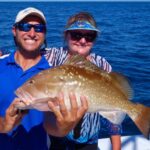The Florida Fish and Wildlife Conservation Commission (FWC) and Big Cypress National Preserve will implement a program to reduce the number of Burmese pythons in the wild in Florida. Beginning Aug. 29, the FWC and Big Cypress will enlist the help of licensed hunters on specific wildlife management areas in South Florida.
To move forward quickly for the 2009 hunting season, an executive order was signed by the FWC to allow hunters on specific areas to take any Reptile of Concern, including Burmese pythons, when the hunters encounter them. The order also will apply to those who have received permits to participate in the alligator hunt program in the specified areas. The FWC will be considering rule changes as necessary to follow up on this order for more long-term measures. The order states, “Reptiles of Concern as listed in Rule 68A-6.007(1)(a)-(f) may be taken during established seasons for the taking of game animals or alligators on the areas and only by persons properly licensed and permitted to take game animals … or alligators.”
Reptiles of Concern may not be taken out of the areas alive. The order also requires hunters to report the take of Reptiles of Concern within 36 hours and to provide the FWC with specific data about the reptile taken. For more information on data collection, go to the Quick Clicks area of MyFWC.com and select “Burmese pythons.”
The lands specified in the FWC order are Everglades and Francis S. Taylor, Holey Land, Rotenberger and Big Cypress wildlife management areas. Everglades National Park is not a participant in this particular program. However, the FWC is working with Big Cypress, the South Florida Water Management District and the National Park Service to manage the Burmese python problem in the area of South Florida that encompasses the Everglades. The Big Cypress National Preserve is instrumental in enlisting support from hunters through its Partnering with Hunters program.
“It is only natural that we enlist the aid of hunters,” said Rodney Barreto, FWC chairman. “Historically, hunters have played a great role with wildlife conservation in this country, and they know the land and have a vested interest in conserving native habitat and game species.”
In July, the FWC began issuing permits to selected recipients to go into these wildlife management areas to search for and euthanize Reptiles of Concern. The permit holders and licensed hunters may remove the hide and meat of the reptiles from the state-managed lands. However, according to the National Park Service, mercury testing on two dozen captured Burmese pythons in Everglades National Park revealed extraordinarily high levels of mercury in the meat. These levels are well above those considered safe to eat in freshwater fish and alligators. The FWC is working with the National Park Service and the Florida Department of Health to get a broader view of this issue. It will provide updates as further information about mercury levels becomes available.
The FWC’s goal for these programs is to contain the spread of Burmese pythons in the wild and prevent the establishment of other Reptiles of Concern. Data collected by hunters on these state-managed lands at the edge of the range of Burmese pythons will assist in preventing movement of pythons out of this range. It is estimated there are thousands of Burmese pythons in the wild in South Florida. Experts believe pet owners may have released pythons into the wild when they had grown too large for the owners to care for them.It is illegal to release any nonnative species, including Reptiles of Concern, into the wild. Besides Burmese pythons, the FWC’s list of Reptiles of Concern include the Indian python, reticulated python, African rock python, amethystine or scrub python, green anaconda and Nile monitor lizard.If Reptile of Concern pet owners cannot keep their snakes anymore, they can turn the reptiles in during the FWC’s Pet Amnesty Days. These events are held around the state to provide the opportunity for people to surrender their nonnative pets, with no questions asked. The next one is Nov. 7 in the Tampa area. Every attempt is made to place all healthy animals with qualified adopters. People with properly licensed Reptiles of Concern also may give them to other licensed individuals. For more information on Pet Amnesty Days, go to MyFWC.com/Nonnatives.






